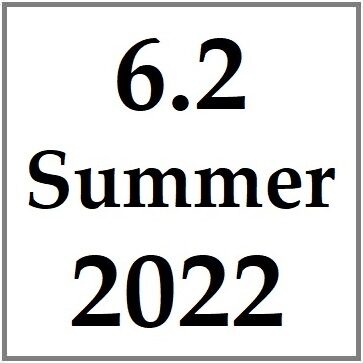COVID Carework as a First-Generation Filipino Graduate Student
Eirein Gaile D. Harn
Keywords: first-gen student, reference to anti-Asian sentiment, trauma-informed pedagogy, Filipino-American experiences
Categories: Teaching as Carework, Teaching as Dangerous Work; Bearing the Weight of Racism through Anti-Racist Work and (Cross-)Racial Solidarity
Content warning: anti-Asian racism and violence
I come from a community and culture of multigenerational homes, a tradition deemed dangerous by the COVID-19 pandemic. As we closed our door to visitors and sanitized anything and everything that came through it to protect my 85-year-old lola and immunocompromised parents, I could not process—let alone celebrate—graduating, starting grad school, or teaching—three of my greatest accomplishments as a first-generation college student. Instead, as the designated least-immunocompromised (but still immunocompromised) going-outside-person in my household, I developed an intense fear of simply going to the grocery store or getting gas and bringing the virus home to my family. I live(d) in a constant state of worry—anticipating the worst in case any one of us got sick—every day’s goal being a version of: “just survive.” I was, and still am, trying to survive.
On top of this, I could not help but think about the implications of being a Filipino student and instructor during the rise of anti-Asian sentiment and hate crimes. Even as a writer, I do not quite have words for what it feels like to see people that look like me, my mom, and my lola get beaten on streets, attacked on the bus, slashed across the face, and shot at work—just for being Asian. How was I supposed to continue business as usual? I spoke, instead, to a sea of black boxes and muted microphones, behind which were students feeling the heaviness of the world—a world currently drowning in COVID, vaccine disinformation, and anti-Asian rhetoric—and we talked. I had to communicate to them that I, too, felt like crumbling under the weight of the world.
Through my department’s RSA Chapter, I lead the charge to write and release a statement of solidarity with Asian communities. It was simply the right thing to do, but for me, it was also a means of survival. Despite feeling the most discouraged, burnt out, and unmotivated I have ever been, I seized the opportunity to vocalize my fears—both of leaving home to go to the grocery store and of not making it back. It was also an opportunity to amplify the presence of the very few Asians in my department. It was important to me to vocalize this reality to my white colleagues who, perhaps, did not live with the same unrelenting fears.
What I have learned is that it is necessary to extend the definition of trauma-informed teaching to include specifically COVID-induced trauma—that which developed, or was heightened by the effects of the pandemic, or has always existed but was never publicly acknowledged until COVID. As I grapple with all that COVID has taken from us as students, educators, and human beings, my pedagogy will include further extensions of grace—towards students, fellow teachers, and myself. And now, as we attempt to move forward through and hopefully away from COVID, may we never forget that, for many, fear, trauma, and pain remain. It has never been more appropriate to expand our definition of carework to include our students, colleagues, and ourselves—fellow humans,
who may also be from multigenerational homes,
who are also trying to survive a global pandemic,
who may also be burdened by survivor’s guilt,
who may also be afraid of not making it home.
Bio
 |
Eirein Gaile Harn is a recent graduate from San Diego State University’s Rhetoric and Writing Studies Master’s program with a specialization in the Teaching of Writing, where she taught first-year composition and served as an assistant of the Lower Division Writing Program. Her MA thesis was centered on the rhetorical implications of names and how individuals navigate their cultural identity via their names. EG’s current research includes rhetorical onomastics, trauma-informed pedagogy, and Filipino and Filipino-American experiences in the US. |
